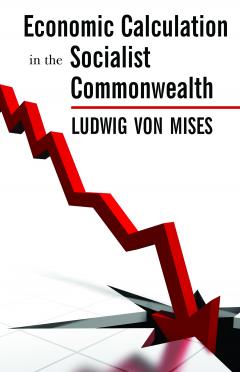Kremlin Factions and the Enemies of Socialism
Well, isn’t that a shocker. With Russia’s economy under serious threat from Western economic sanctions and falling oil prices, a major Kremlin faction has quite unexpectedly gotten some wind behind its sails.
In essence, there are two economic viewpoints that are supported in the Kremlin: one is represented by the former KGB types who have seen their political fortunes revived under Putin. Many of Russia’s so-called oligarchs have aligned themselves with this faction, which is not surprising: owners of large established businesses often tend to support statism, because it ensures the suppression of competition from upstarts. This is also the main reason why many big businesses in the West are supporting the regulatory State and the ever increasing pressure on economic and individual freedom it stands for.
We may thus call this the “statist” faction. The other faction is represent by people aligned prime minister Dimitry Medvedev – this is the pro-liberty, pro-economic liberalization faction, which has seen its fortunes alternately waxing and waning since the collapse of the Soviet Union, but which has never been fully rooted out. This is not least due to the fact that many economists in the former Eastern Bloc are acutely aware of the failure of socialism, and have eagerly studied the arguments forwarded against it. Today there are probably more economists in the former Eastern Bloc who are aware of and have understood the Misesian critique of economic calculation under socialism, than one can find in the West.

Evil Russian grand poobah goes for more economic freedom.
(Image via ilbe.com)
In fact, Western intellectuals have never lost their penchant for central economic planning, presumably because they have never been personally exposed to what happens when it is implemented in full. By contrast, the Eastern Bloc was a laboratory for the Marxist doctrine, and its failure was acutely felt by everyone living there. It occurred precisely for the reasons elaborated in the theoretical work of Mises. In this context, we strongly recommend reading the famous monograph that started the “socialist calculation debate”: Economic Calculation in the Socialist Commonwealth (pdf). Mises was quite generous in his assumptions: he assumed that there would be a market for consumer goods, and a token “money” that could be exchanged for them. However, there would be no market for capital goods, with the State in full control of the means of production. Mises showed that such an economy would be deprived of economic calculation; the lack of prices for capital goods would make it impossible for the planners to allocate resources efficiently,regardless of how much ancillary information they possessed, and regardless of the purity of their intentions.
The debates on the subject (in which F.A. Hayek and other “Austrians” were involved as well) have shown that Mises’ critics had often not even understood his argument. They thought that sufficiently strong calculation devices and adequate mathematical equations would be all that would be required to effectively “plan” an entire economy. It is quite ironic in this context that the Marxist experiment collapsed in the biggest bankruptcy in history just as such powerful computational devices became indeed widely available.
The upshot is that today, we find more sworn enemies of socialism in the former Eastern Bloc than in the West. A strong current in favor of free markets was set into motion in academic circles in the former command economies after the collapse of the Soviet Union, and its influence never completely waned.

The monograph that explained why socialism cannot work
( )
)
Russia Going in the Opposite Direction from Western Regulatory Democracies
Russia’s national security apparatus by its very nature is a major part of the “statist” faction. With the support of Russian nationalists, it has certainly gotten its way in both the Georgian crisis and again in the Ukraine crisis. From a geopolitical perspective, Ukraine is regarded as a big “prize” by Western strategists (we refer you to Zbigniev Brzezinski’s “The Grand Chessboard” in this context, which is a kind of neo-con/war party bible). At the same time, the geopolitical importance of Ukraine for Russia can hardly be overstated. From production facilities supplying the Russian military-industrial complex to important gas pipelines (see also “The Map that Explains Everything”), to the warm water port of Sevastopol, to the fact that it is regarded as a “buffer” state and has a large ethnic Russian population, Ukraine is very high up on the Russian government’s list of foreign policy priorities.













Leave A Comment